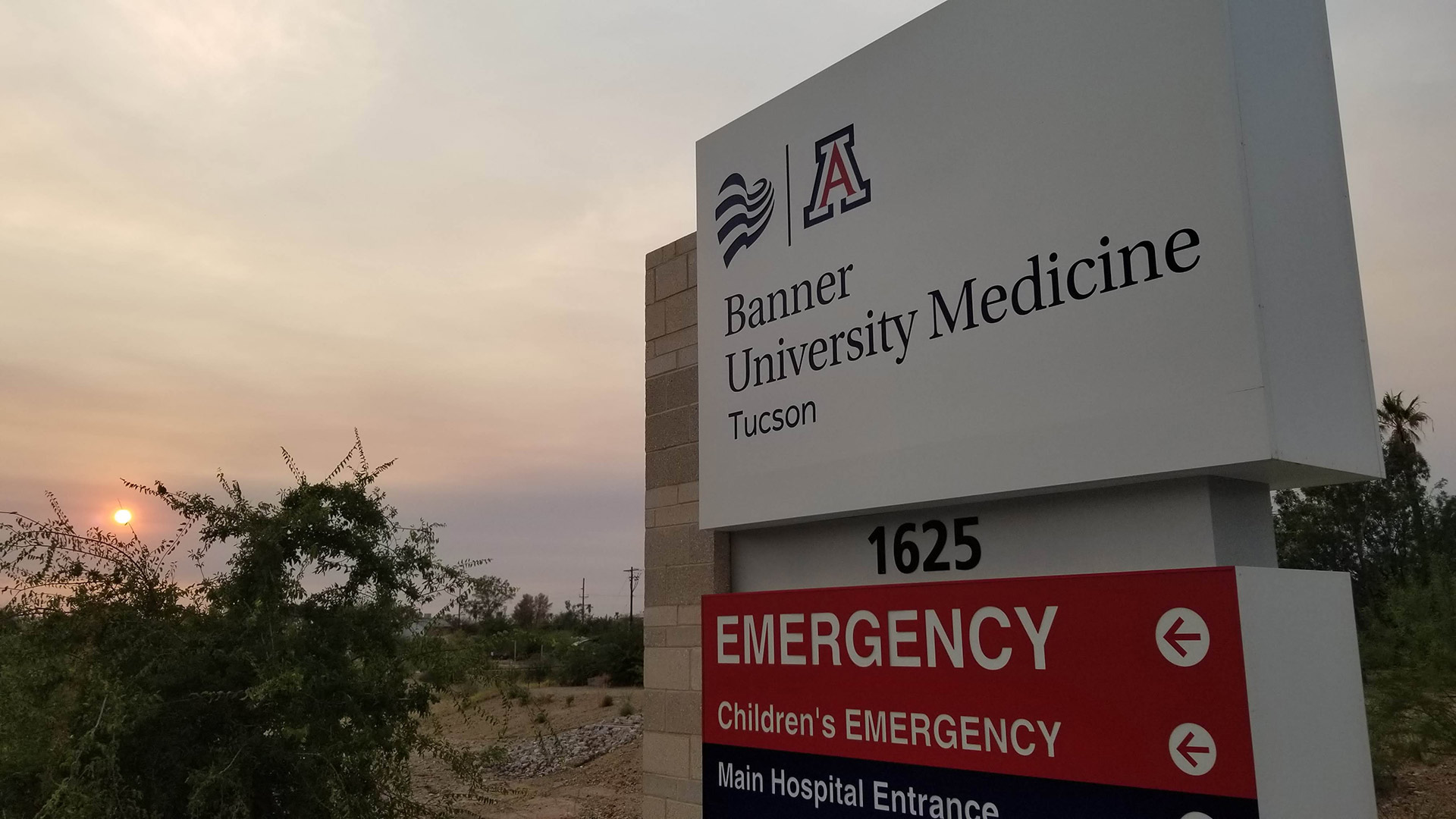 A sign outside the east entrance to Banner University Medicine directing visitors and patients to the emergency room.
A sign outside the east entrance to Banner University Medicine directing visitors and patients to the emergency room.
Banner Health officials said Banner-University Medical Center in Tucson was operating above capacity Tuesday and that the organization’s hospitals across Arizona are stretched further than at any point since the start of the COVID-19 pandemic.
The hospital system does not expect the number of inpatients to peak until the middle of January. But those calculations do not account for the new omicron variant.
"If the forecasted trend continues, we will soon be unable to meet the health care demands of Arizonans," Chief Clinical Officer Dr. Marjorie Bessel told reporters during a news conference.
The number of COVID-19 cases reported in Arizona began increasing most recently during October. And while COVID-19 cases account for a smaller share of patients than the hospital saw in previous surges, Bessel said several factors are straining the hospital system.
Bessel said many health care workers have retired, left the industry or moved into roles away from the hospital bedside during the pandemic.
The hospital system is also seeing patients who delayed care during earlier parts of the pandemic.
"Some of them delayed preventative care. Some of them are presenting after having symptoms for a protracted period of time and presenting late in the course of their disease or illness," she said. "Those non-COVID patients are what makes up the rest of our inpatient occupancy and this, in combination with our COVID patients, is what is creating the largest load of inpatient census that we have had since the beginning of the pandemic."
Some care has been postponed due to the surge in COVID-19 cases and strain on intensive care units, she added.
To reduce the strain on emergency rooms for non-life-threatening illnesses and injuries, Banner announced it will prioritize sick visit for established patients at its primary care clinics. As a result, patients may experience increased wait for non-urgent primary care appointments that can be safely delayed, Bessel said.
Bessel encouraged Arizonans to get vaccinated against COVID-19 and get booster shots if already vaccinated.
COVID-19 patients account for 36% of intensive care unit patients and 88% are unvaccinated, according to the hospital system.
The state Department of Health Services reported 2,168 new cases of COVID-19 on Tuesday and 203 deaths.
A total of 1,320,748 cases have been reported since the start of the pandemic and 23,243 deaths.

By submitting your comments, you hereby give AZPM the right to post your comments and potentially use them in any other form of media operated by this institution.